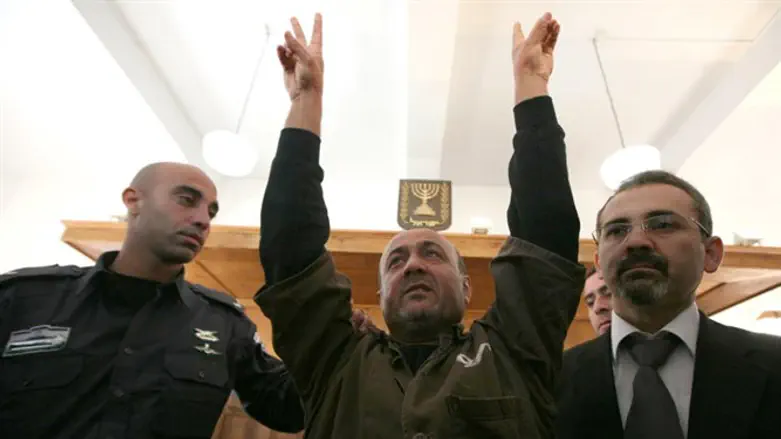
Hamas' armed wing on Tuesday gave Israel 24 hours to respond to the demands of hunger-striking prisoners, warning the Jewish state it would face consequences for failure to act.
"We warn the enemy not to ignore the just and legitimate demands of the prisoners, and we say we are giving the enemy leadership 24 hours to respond," a spokesman for the Ezzedine al-Qassam Brigades said in a recorded speech.
Otherwise, he warned, Israel would "pay the price every day they delay responding to the demands".
The statement did not list all potential responses but said the number of prisoners demanded in any future prisoner exchange would be increased.
The hunger strike over prison conditions began on April 17, with those taking part ingesting only water and salt.
They have issued demands ranging from better medical care to phone access.
The Palestinian Authority says around 1,500 prisoners are refusing food, though an Israeli minister said Sunday around 300 had recently abandoned their claim, putting the number of remaining strikers at 980.
The protest is being led by Marwan Barghouti, a senior figure in the Hamas' rival Fatah who is in jail over the deaths of five Israelis during the second intifada, or uprising.
Barghouti accused Israel of "inhumane" treatment of prisoners and "judicial apartheid" in a New York Times opinion piece published last month outlining the reasoning for the strike.
Israeli Prime Minister Binyamin Netanyahu criticized the newspaper for referring to Barghouti as a "Palestinian leader and parliamentarian" while failing to note his five convictions for murder and history as a commander of Arab terrorist organisations.
In 2011 Israel released more than 1,000 Arab prisoners in exchange for Gilad Shalit, an Israeli soldier kidnapped five years earlier.
Hamas claims to have two current Israeli soldiers, though the Jewish state says they are dead but still wants their bodies.
The Islamist movement is also believed to have detained two Israelis who entered Gaza separately, both of whom allegedly have serious mental health issues.
Earlier Tuesday thousands of Arabs demonstrated in several cities over Israel's decade-long blockade of Gaza.
During one of the marches senior Hamas leader Ismail Haniya said in a statement carried on Hamas media that a prisoner exchange was "always on the table" but it depended on Israel's willingness to compromise.
Israel and Hamas have fought three wars since 2008, the most recent in 2014.